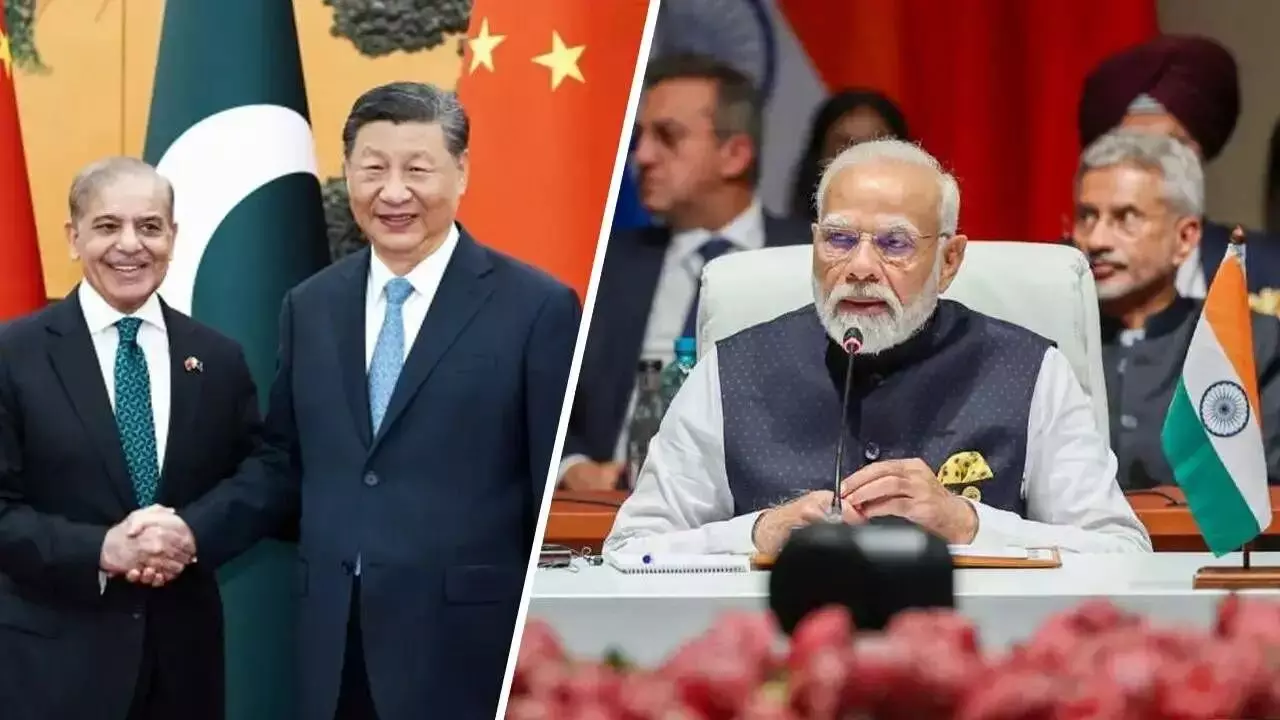Pakistan, China Exploring New Regional Bloc to Replace SAARC — Should India Be Concerned?
Pakistan and China may form a new regional bloc to replace SAARC, aiming for greater connectivity—India appears unfazed, focusing on other alliances.
image for illustrative purpose

Recent media sources claim that China and Pakistan are negotiating the creation of a new regional alliance that would replace the long-defunct South Asian Association for Regional Cooperation (SAARC). The project, which is still in the discussion stage, represents a renewed push by Beijing and Islamabad to increase regional cooperation and connectivity, especially in South Asia, where political conflicts have frequently hampered international efforts.
Developing Into a New Bloc?
Discussions between China and Pakistan have advanced, according to Pakistan's Express Tribune. Deeper regional integration is the goal of this new alliance, especially in the areas of commerce, connectivity, and economic development, where SAARC has not advanced much in recent years.
As part of this larger diplomatic effort, officials from Bangladesh, China, and Pakistan reportedly met in a trilateral conference recently in Kunming, China. According to people with knowledge of the negotiations, the ultimate goal is to include other South Asian countries including Afghanistan, Sri Lanka, and the Maldives. India might also receive an invitation, although it is unclear if it will accept.
Dhaka denies that a bloc is formed.
Bangladesh has brushed down rumours about the Kunming meeting, saying officials said it was not political. Bangladesh's interim government's foreign affairs adviser, M Touhid Hossain, distanced Dhaka from proposals for a new China-led coalition by declaring, "We are not forming any alliance."
The Cause of SAARC's Limbo
Founded in 1985 to encourage regional and economic cooperation among South Asian nations, SAARC has mainly been dormant for the past ten years. In 2014, the last summit took place in Kathmandu. After India withdrew after a terrorist attack in Uri, Jammu and Kashmir, a planned summit in Islamabad in 2016 was cancelled. This event prompted the withdrawal of numerous additional members, including Bangladesh, Bhutan, and Afghanistan.
India has not committed to reviving SAARC, despite appeals from Bangladesh and Pakistan to do so on occasion. Indian officials insist that a key barrier to resuming substantive SAARC cooperation is Pakistan's purported encouragement of cross-border terrorism.
India's Strategic Shift to New Organisations
India has been focussing more on platforms it believes will be more beneficial and in line with its strategic goals rather than SAARC. These include I2U2 (India, Israel, UAE, U.S.), the Quad (India, the U.S., Japan, and Australia), and BIMSTEC (Bay of Bengal Initiative for Multi-Sectoral Technical and Economic Cooperation).
While SAARC leaders attended the 2014 swearing-in ceremony, Indian Prime Minister Narendra Modi invited BIMSTEC leaders instead of his SAARC counterparts in a symbolic move that reflected this change.
When questioned about the resuscitation of SAARC, India has since reaffirmed its reservations regarding terrorism. Randhir Jaiswal, a spokesperson for the MEA, recently said that "everyone in South Asia is aware of which country and what activities are responsible for stymying SAARC."
Implications for the Future
Analysts say that if China and Pakistan decide to join a new regional bloc, it may give nations in South Asia and beyond a new forum to pursue common geopolitical and economic goals. In light of India's changing foreign policy objectives and its present focus on alternative regional alliances, New Delhi is unlikely to see this development as a serious danger.
For Pakistan and China, the challenge will be to rally other nations and offer a compelling vision that addresses longstanding regional issues — something SAARC has struggled to do for over a decade.

